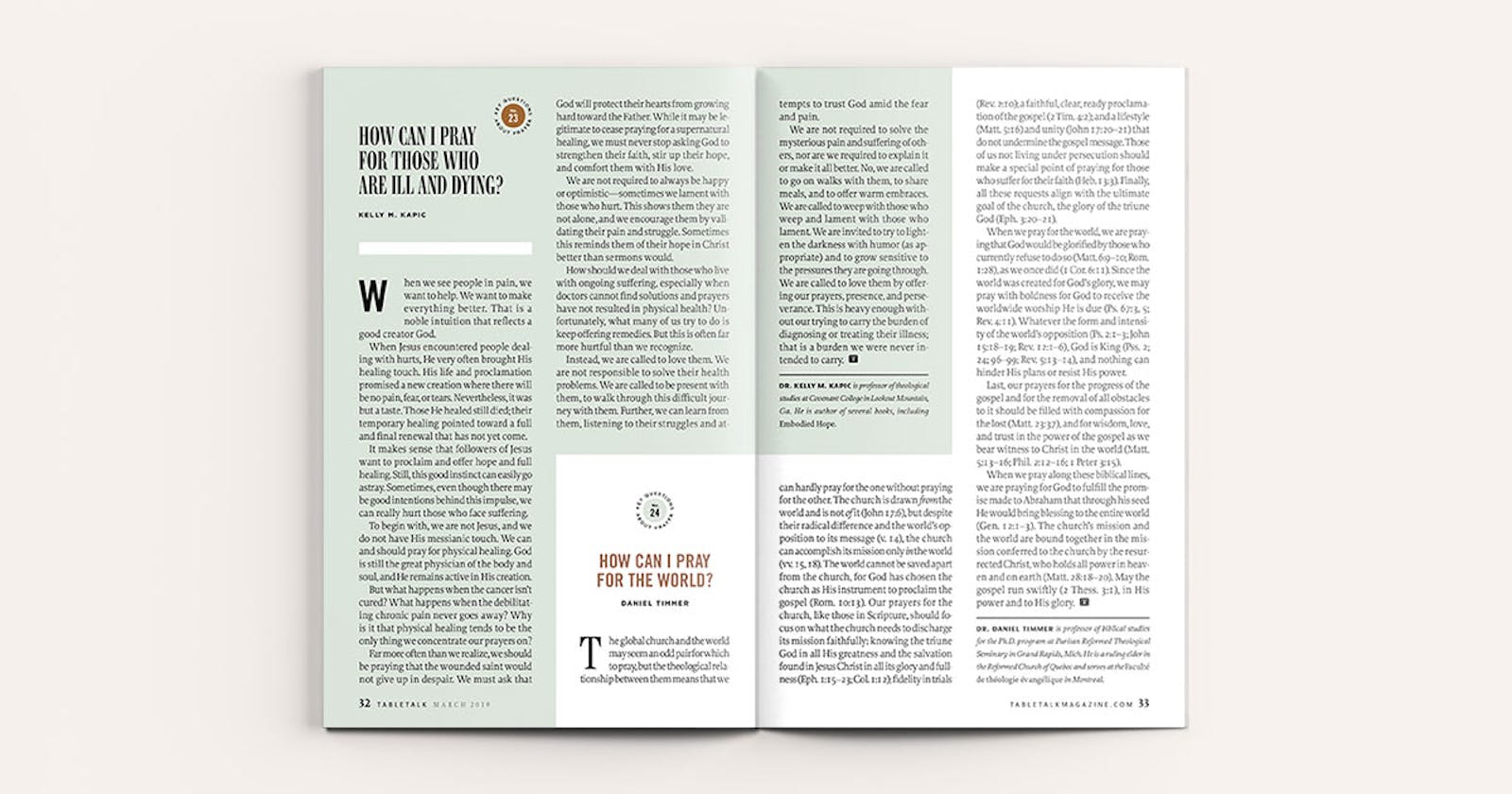
Request your free, three-month trial to Tabletalk magazine. You’ll receive the print issue monthly and gain immediate digital access to decades of archives. This trial is risk-free. No credit card required.
Try Tabletalk NowAlready receive Tabletalk magazine every month?
Verify your email address to gain unlimited access.
When we see people in pain, we want to help. We want to make everything better. That is a noble intuition that reflects a good creator God.
When Jesus encountered people dealing with hurts, He very often brought His healing touch. His life and proclamation promised a new creation where there will be no pain, fear, or tears. Nevertheless, it was but a taste. Those He healed still died; their temporary healing pointed toward a full and final renewal that has not yet come.
It makes sense that followers of Jesus want to proclaim and offer hope and full healing. Still, this good instinct can easily go astray. Sometimes, even though there may be good intentions behind this impulse, we can really hurt those who face suffering.
To begin with, we are not Jesus, and we do not have His messianic touch. We can and should pray for physical healing. God is still the great physician of the body and soul, and He remains active in His creation.
But what happens when the cancer isn’t cured? What happens when the debilitating chronic pain never goes away? Why is it that physical healing tends to be the only thing we concentrate our prayers on?

Far more often than we realize, we should be praying that the wounded saint would not give up in despair. We must ask that God will protect their hearts from growing hard toward the Father. While it may be legitimate to cease praying for a supernatural healing, we must never stop asking God to strengthen their faith, stir up their hope, and comfort them with His love.
We are not required to always be happy or optimistic—sometimes we lament with those who hurt. This shows them they are not alone, and we encourage them by validating their pain and struggle. Sometimes this reminds them of their hope in Christ better than sermons would.
How should we deal with those who live with ongoing suffering, especially when doctors cannot find solutions and prayers have not resulted in physical health? Unfortunately, what many of us try to do is keep offering remedies. But this is often far more hurtful than we recognize.
Instead, we are called to love them. We are not responsible to solve their health problems. We are called to be present with them, to walk through this difficult journey with them. Further, we can learn from them, listening to their struggles and attempts to trust God amid the fear and pain.
We are not required to solve the mysterious pain and suffering of others, nor are we required to explain it or make it all better. No, we are called to go on walks with them, to share meals, and to offer warm embraces. We are called to weep with those who weep and lament with those who lament. We are invited to try to lighten the darkness with humor (as appropriate) and to grow sensitive to the pressures they are going through. We are called to love them by offering our prayers, presence, and perseverance. This is heavy enough without our trying to carry the burden of diagnosing or treating their illness; that is a burden we were never intended to carry.
